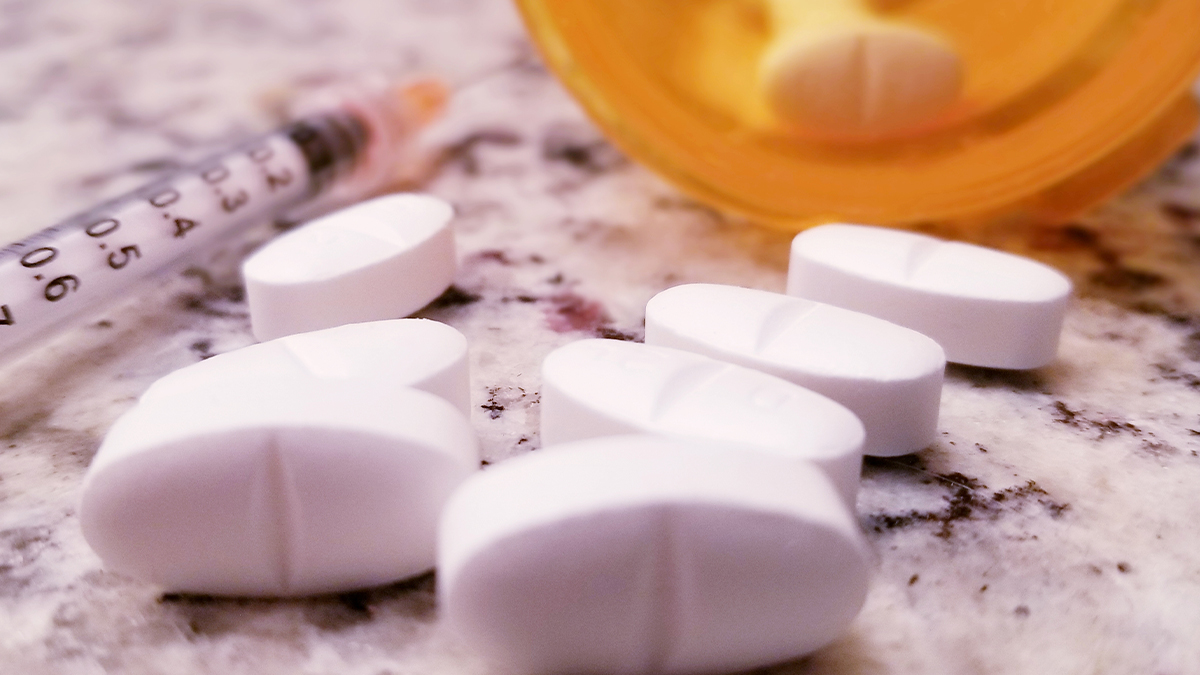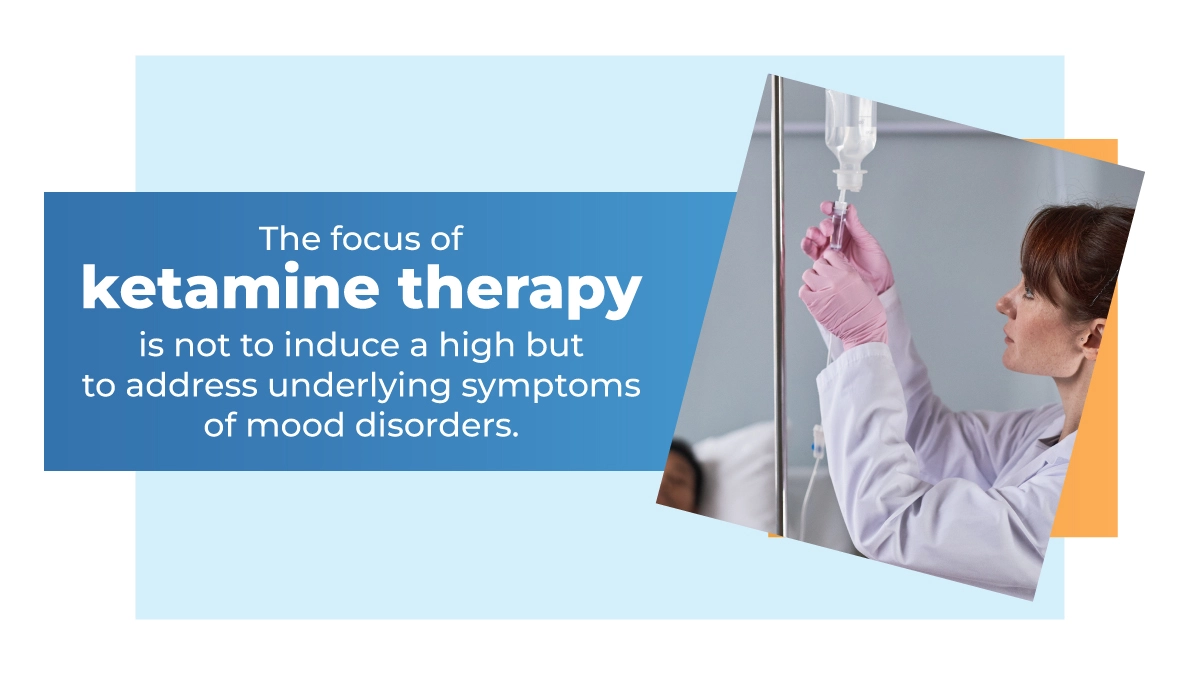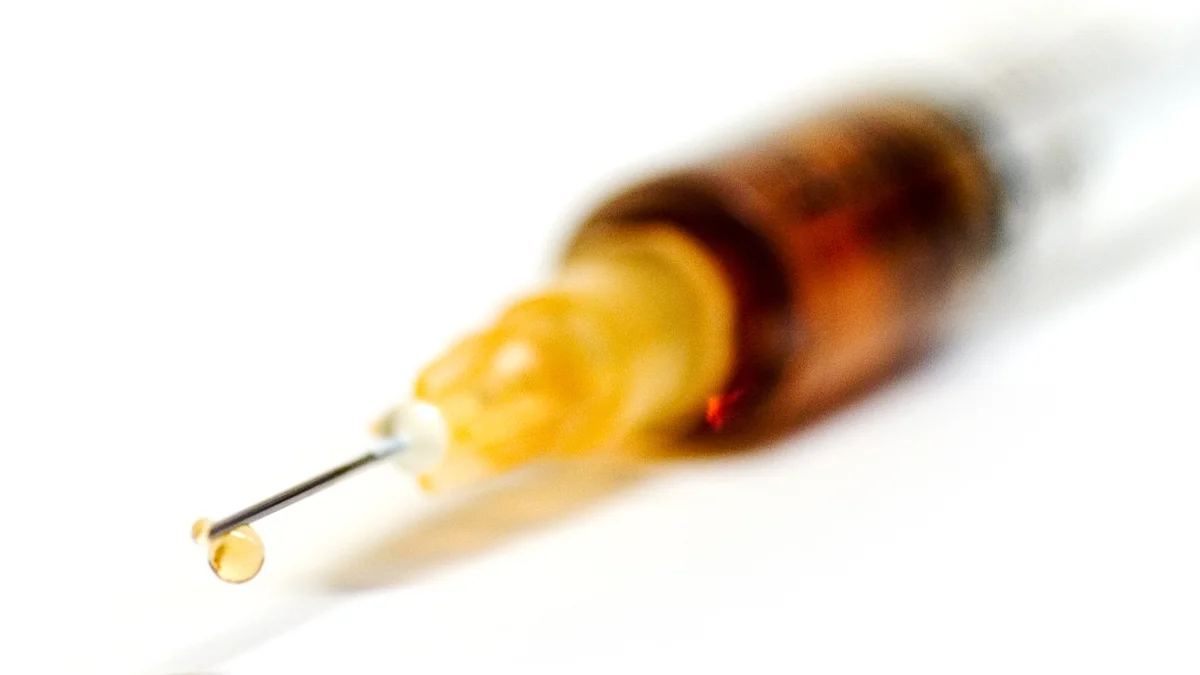
Lyrica With Suboxone: Risks And Safe Practices
The Recovery Team-Newton explores whether taking Lyrica with Suboxone is safe. Explore potential risks and guidelines

Ketamine, often used as an anesthetic in medical settings, has gained attention for its potential to induce feelings of euphoria and dissociation when misused. Its primary purpose is to provide relief and sedation to patients dealing with depression, PTSD, and other mental illnesses.
However, recreational use of ketamine may result in a profound, sometimes disorienting “high.” This altered state of consciousness can be appealing to some, but it also requires healthcare attention to alleviate side effects. Read below to find out how ketamine therapy works and what you will experience after the treatment.
Ketamine therapy uses controlled, low doses to safely address depression and other mental disorder symptoms. Here’s what you need to know:
The Recovery Team-Newton offers holistic treatment options for mental health. Call us at (508) 978-2772 today.
Ketamine affects certain chemicals in the brain, primarily hindering the NMDA receptors, which are involved in the excitatory neurotransmitter glutamate. By inhibiting NMDA receptors, ketamine reduces glutamate activity, which can lead to dissociation and altered perceptions. This drug also interacts with opioid receptors, which might contribute to its analgesic and mood-altering effects.
The use of ketamine infusion therapy has shown promising results, particularly for patients suffering from major depression and other mental health conditions. In clinical settings, ketamine is administered at low doses by a medical professional, ensuring safety and effectiveness. This controlled approach helps manage depressive symptoms and can provide quick relief for those experiencing suicidal thoughts.
Ketamine therapy offers a unique holistic approach to treating mental health disorders, especially for those with treatment-resistant depression. The experience can vary, but understanding what to expect can help alleviate concerns.
During a ketamine therapy appointment, patients typically receive the drug ketamine either through an intravenous (IV) infusion or a nasal spray. The session usually lasts around forty to sixty minutes, with the dosage carefully adjusted by a medical professional to ensure safety and effectiveness. The low doses used in therapy are specifically chosen to maximize the powerful effect of ketamine while minimizing potential side effects.
Some people may experience euphoria or a dissociative “high” during the therapy, but this is generally mild and temporary. The focus of ketamine therapy is not to induce a high but to address underlying symptoms of mood disorders.
The drug ketamine’s primary role is to alter brain chemistry in a way that helps improve mood and reduce symptoms. Motor skills may be slightly affected during the session, but these effects usually wear off quickly.
Ketamine treatment, often used for conditions like depression and anxiety, can sometimes lead to sensations that may be described as feeling “high.” Here are the main factors influencing this experience:
The dosage of ketamine is a crucial factor. At higher doses, ketamine can produce intense effects, including a feeling of euphoria or dissociation. This is different from the controlled, lower doses used in ketamine clinics for therapeutic purposes. Inappropriate dosing or using ketamine as a psychedelic party drug can lead to extreme drowsiness and drug overdose.
Each person’s response to ketamine can vary based on their health status and individual neurochemistry. For some, the effects might be more pronounced, especially if they have underlying conditions like high blood pressure. Pre-existing mental health issues or other medications can also influence the sensitivity to ketamine.
The environment where ketamine is administered plays a significant role. A well-regulated setting with a healthcare provider can mitigate the risk of feeling uncomfortably high.
In contrast, a non-clinical setting might increase the likelihood of experiencing intense sensations. Intravenous infusion in a controlled clinic ensures that the treatment remains within therapeutic boundaries and helps manage potential side effects effectively.
Doctors and healthcare providers play a crucial role in ensuring that ketamine therapy is administered safely to avoid the extreme sensation of “high.” For patients with severe depression, post-traumatic stress disorder, or anxiety disorders, medical practitioners closely monitor each session to address any potential risks and manage short-term side effects.
Under medical supervision, practitioners carefully adjust dosages and methods to fit each patient’s specific needs. They assess the effectiveness of ketamine and make necessary adjustments to the treatment plan. This careful oversight helps to minimize any potential risks associated with the therapy, ensuring that the benefits outweigh any possible drawbacks.
By providing expert guidance throughout the therapy, medical practitioners help to maximize the medical uses of ketamine while maintaining safety and comfort. Their involvement is essential for achieving the best results and addressing any concerns that may arise during treatment.
Ketamine therapy may lead to a feeling of”high” and is not suitable for everyone. Explore various mental health treatment options at The Recovery Team-Newton to support your journey.
We offer an intensive outpatient program that provides flexible, structured care for those needing ongoing support while living at home. For more immersive treatment, our day treatment program offers a full-day therapeutic environment. Additionally, our medication-assisted treatment helps manage symptoms effectively, combining medication with counseling for optimal results.
Explore these options and find the right fit for your needs. For more information, call (508) 978-2772.
Ketamine therapy is generally safe when administered under medical supervision, especially at low doses of ketamine. It is used to treat severe depression symptoms and can be effective for those with specific conditions. Common side effects of ketamine include dizziness, nausea, and a temporary sense of detachment. These side effects are usually mild and short-lived.
The acute effects of ketamine can vary but are closely monitored by doctors to ensure patient safety. Overall, the therapy is well-tolerated, but it’s important to discuss any concerns with your doctor to fully understand the risks and benefits before starting treatment.
Ketamine, when used therapeutically under medical supervision, has a low risk of addiction. In therapeutic settings, it is administered in controlled doses to treat conditions like severe depression and is not typically used recreationally. The focus is on managing mental health symptoms rather than inducing a high.
Addiction risk is higher when it is misused or mixed with alcohol. That can lead to heightened euphoric effects and may lead to drug dependence. Since any medication has the potential for misuse, it’s essential to follow your healthcare provider’s advice and discuss any concerns you may have about dependency or side effects.
Ketamine infusion therapy involves receiving ketamine through an intravenous (IV) drip in a medical setting. During the session, you’ll be comfortably seated or lying down, and the medication is administered slowly over forty to sixty minutes.
Patients might experience mild dissociation or a sense of detachment, but this is usually temporary. The therapy is designed to target severe depression, PTSD, or other mood disorders. Healthcare providers closely monitor the treatment to ensure safety and effectiveness. While some side effects like dizziness or nausea might occur, they generally resolve quickly. Overall, ketamine infusion therapy aims to provide relief from mental health symptoms in a controlled, supportive environment.

The Recovery Team-Newton explores whether taking Lyrica with Suboxone is safe. Explore potential risks and guidelines

Learn about Suboxone injection side effects and explore recovery solutions in this guide by The Recovery Team-Newton.